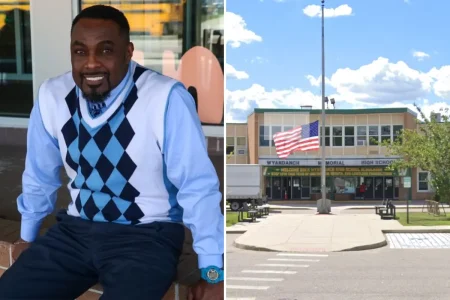Missing Hiker Found: The Story of Travis Decker
In a somber development that has brought both closure and heartache to a community in waiting, search teams have discovered what are believed to be the remains of Travis Decker, a missing hiker, in a forested area approximately 120 miles east of Seattle. The discovery marks the end of what was likely an extensive search operation that had been conducted across the challenging terrain of Washington state’s wilderness. While official identification is pending, authorities have indicated that the evidence strongly suggests they have located Mr. Decker, bringing a difficult conclusion to what may have begun as a day of outdoor adventure that tragically went awry. The forest where he was found represents the complex beauty and inherent dangers of the Pacific Northwest’s natural landscapes – environments that attract thousands of outdoor enthusiasts each year but occasionally claim lives despite the best precautions.
The area east of Seattle where Travis was discovered encompasses some of Washington’s most breathtaking yet unforgiving wilderness, featuring dense forests, unpredictable weather patterns, and rugged topography that can challenge even experienced hikers. Search and rescue teams had likely been combing through miles of difficult terrain, battling the elements and time constraints in hopes of finding Travis alive. These dedicated professionals and volunteers represent the often unsung heroes of wilderness emergencies, people who put their own safety at risk to find those who have become lost or injured in remote locations. For the teams involved in this particular search, the discovery of remains rather than a survivor undoubtedly weighs heavily on their hearts, even as they fulfill their solemn duty to bring Travis home to those who loved him.
Behind every missing hiker headline is a deeply human story – Travis Decker was someone’s son, perhaps someone’s partner, friend, or colleague. His journey into the wilderness might have been motivated by a love of nature, a desire for solitude, or simply the joy of exploring the magnificent landscapes that define the American Northwest. Whatever drew him to these woods, his disappearance would have triggered immediate concern from loved ones, followed by the growing dread that accompanies silence and absence. For families of missing hikers, time passes differently – hours stretch painfully as hope mingles with fear, and each phone call might bring either the relief of good news or the confirmation of worst fears. Now, those who cared for Travis face the difficult process of grieving while finding solace in at least knowing what happened to him, rather than enduring the ongoing torment of uncertainty.
The discovery of Travis approximately 120 miles from Seattle highlights the vast expanses of wilderness that surround the Pacific Northwest’s urban centers – places where cell service disappears, where weather can change in minutes, and where a simple wrong turn can lead to disorientation. Each year, numerous hikers find themselves in perilous situations in America’s wilderness areas, with outcomes ranging from dramatic rescues to tragic losses. Travis’s case serves as a sobering reminder of nature’s unpredictability and the importance of preparation when venturing into remote areas. While we don’t know the specific circumstances of his disappearance, his story joins countless others that underscore how quickly outdoor adventures can become survival situations, even for those who may have taken reasonable precautions before setting out on their journey.
As authorities work to officially confirm the identity of the remains and determine the cause of death, Travis’s community likely gathers in remembrance, sharing stories of his life rather than focusing solely on its end. In these moments of collective grief, people often discover the full measure of a person’s impact – the quiet kindnesses, the memorable laughs, the dreams both fulfilled and left unfinished. For those who knew Travis personally, the confirmation of his passing transforms abstract worry into concrete loss, beginning a grief journey that acknowledges both the pain of his absence and gratitude for his presence in their lives. Meanwhile, Seattle’s tight-knit outdoor community will likely reflect on this loss as both a tragedy and a cautionary tale, perhaps reviewing their own safety protocols while remembering that even the most careful adventurers can face circumstances beyond their control.
The forests east of Seattle will continue to stand as they have for centuries, indifferent to human joy or sorrow, drawing new hikers even as they hold the memory of those lost within their boundaries. Travis Decker’s story, though ended too soon, becomes part of the complex relationship between humans and wilderness – our perpetual attraction to natural spaces despite their inherent risks, our desire to challenge ourselves against landscapes both beautiful and unforgiving. For those who venture out on Washington’s trails in the future, perhaps knowledge of Travis’s fate will prompt an extra water bottle packed, a more detailed route shared with friends, or a moment’s hesitation before exploring off-trail. While the wilderness claimed Travis’s life, his story may help protect others, a legacy that, while never chosen, honors the human instinct to find meaning even in our most profound losses.






